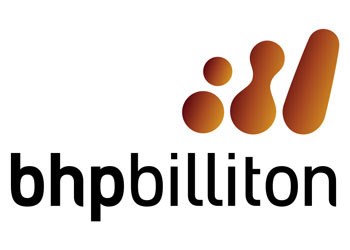Developments that created a slight 'tremor' in the province's potash industry - including postponement and delays for previously announced projects at Kronau and Jansen - haven't affected exploration work in the Melville area. BHP Billiton, the Australian-based mining giant has undertaken extensive seismic and drilling operations in the area the last couple years.
It will proceed with work in the area as planned, according to company spokesperson Bronwyn Wilkinson.
"At Melville, nothing has changed," Wilkinson said from her office in Vancouver.
"Once we have completed the drilling program we will assess the results together with the results of our seismic program. We will also be in a position at the completion of our drilling program around the basin to decide which project will follow Jansen.
"This approach has not changed. We are evaluating our overall land portfolio, we see Melville as highly prospective but we do have a large land position and are identifying the next best development opportunity," Wilkinson explains.
Saskatchewan's potash industry the last few weeks has experienced a 'hiccup' of sorts and has sparked speculation about the future complexion of mine development in the province.
The first was the announcement by Brazil's Vale SA it would postpone development of a $3 billion potash mine at Kronau, about 30 kilometres south-east of Regina. Vale originally planned for the project to start construction possibly by next year but has not indicated what the new timeline is.
Meanwhile, BHP, the world's largest mining company, announced it would delay a decision whether its Jansen project would proceed. That decision, the company says, won't be made before the end of fiscal year 2013.
However, Wilkinson says the $1.2 billion previously committed to the Jansen project was still in place and work would continue.
BHP, Wilkinson notes, has decided to double the size of the first phase from two million tones production per year to four million tones. Wilkinson outlined the work that's been done in relation to the possible development of a potash mine in this area.
The "Concept Study" began in March 2011 and involves studying the area in more detail than was done in initial exploration.
"The completion date of the Concept Study depends on information we gain from exploration and some of the internal priorities we have in relation to work on other projects as we continue to explore the basin."
The last 3D seismic program was completed in March and BHP is currently processing the data from this work, Wilkinson says, adding these programs were designed to assess the quality of the potash in the area as well as the geology in which the potash is located.
BHP said in an earlier interview it would drill anywhere from 30 to 60 holes at a cost of $1 million to $1.5 million each and those projections remain, Wilkinson says.
At that time, BHP said the Jansen project was its first priority with Melville, Young and Boulder also under consideration although there was no development priority finalized for any of the three projects.
Wilkinson says once the drilling is completed around Melville area, the company will be better able to determine "which project will follow Jansen in the project pipeline".
Melville Mayor Walter Streelasky says he recently discussed the Melville project with a BHP official who told him drilling was still being conducted and the project was still going forward. BHP has a large investment in the area so it seems natural the company would continue with the project, Streelasky says.



